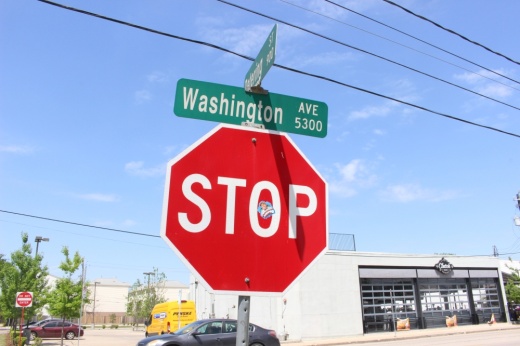After years of receiving complaints related to Houston’s noise ordinance, the city adopted changes May 4 that officials said they hope will work for both residents and business owners.
Houston City Council passed the proposed amendments to the city's noise ordinance that were first introduced at an April 12 Houston Regulatory and Neighborhood Affairs Committee meeting. At-large Council Member Michael Kubosh was the only council member to vote against it.
At-large Council Member Sallie Alcorn said she first took on the challenge of fixing the noise ordinance in 2020 after being sworn into office.
“I think these changes represent an important step in improving the quality of life in many Houston neighborhoods,” Alcorn said.
The amendments include increasing the maximum fine from $1,000 to $2,000, revising a requirement that a permit is issued to an establishment rather than an individual, codifying the hearing process for the revocation of a permit, codifying regulations for a permit issued for a protest at a residential location and creating a commercial establishment sound permit.
According to the April 12 presentation, a commercial establishment is defined as any business entity that sells food or beverages or allows consumption by its patrons on its premises. Any bar or restaurant within 300 feet of a residential property with music that can be appreciated outside is required to apply for the new permit. This includes any outside portion of the establishment that is not fully enclosed—such as patios, courtyards, verandas and plazas—as well as stages, decks and risers, according to the ordinance.
Those with a commercial establishment permit will now be allowed to play music at 75 decibels Sundays through Thursdays from 8 a.m.-10 p.m. and Fridays and Saturdays from 8 a.m.-11 p.m. From 10 p.m.-2 a.m. on Sundays through Thursdays and from 11 p.m.-2 a.m on Fridays and Saturdays, the decibel level must be no more than 68 if measured from the property line and no more than 58 from the residential line. From 2 a.m.-8 a.m., no music is allowed.
If a bar or restaurant already has an annual permit, it will automatically convert to a commercial establishment permit. However, it will expire on the original date of the annual permit’s expiration date. The commercial establishment permit will also cost $1,200.
The changes will go into effect in 120 days. During the transition period, the Houston Administration and Regulatory Affairs Department will work to educate restaurants, nightclubs and bars on the changes and how to correctly apply for the new commercial establishment permit.
The permit revocation and suspension hearing process was also updated to provide an opportunity for a business to propose and implement a sound impact plan. If a hearing officer accepts the plan, a business will have 90 days to implement it. However, if not accepted, a permittee could endure a 180-day suspension or a one-year revocation, according to a May 4 press release. A sound impact plan could include installations of a sound barrier and other equipment that could help better monitor and mitigate the sound.
During an April 26 public session, many residents from the Museum District, the Heights, Midtown and the Washington Corridor spoke out about the issues they face.
Midtown resident Kay Walton said some nights she has to sleep on a twin mattress in her master bathroom to escape the noise and the vibrations of the bass coming from nearby bars.
“I have witnessed an erosion of the quality of life all around me as more and more clubs have opened in our neighborhoods,” Walton said.
Heights resident Mark Williamson also shared his concerns about the noise, especially with more bars popping up along 19th and 20th streets. He said he fully supports the ordinance as a step in the right direction.
“I look forward to this being a considerable help in reducing the nuisance,” Williamson said.





